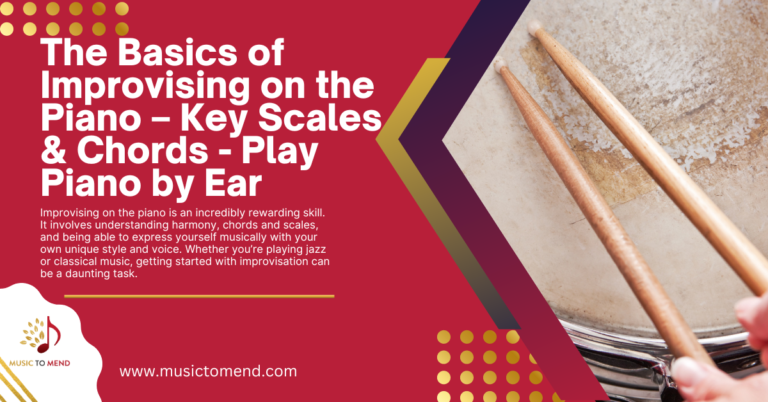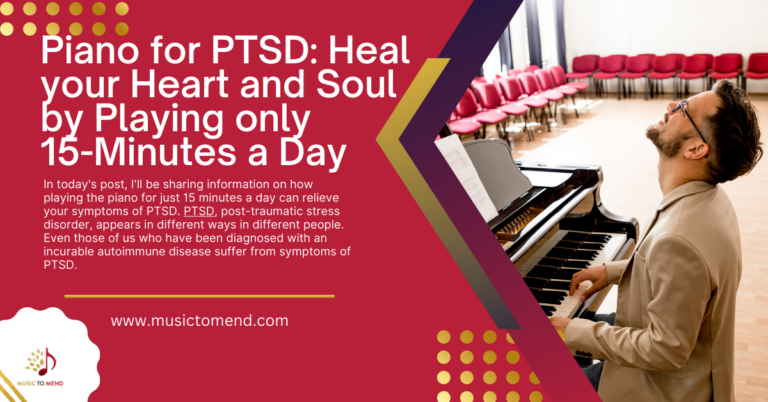The Power of Music: How Listening to Music Helps You Let Go and Move On

What Does Science Say about Music and Negative Emotions?
In today’s article, I’ll be sharing with you how you can let go of past traumas and negative thoughts with music. Whether you suffer from an autoimmune disease like me or struggle with anxiety or depression, music always finds ways to cheer us up.
Music has the potential to be a powerful tool in managing negative emotions. Recent research has shed light on the effects of listening to music on our emotional state. Studies suggest that music can help us cope with stress and anxiety, reduce depression, and even improve our overall mood. It is also believed that certain types of music can help us process difficult emotions and heal from traumatic experiences. In this article, we will explore what science says about the effects of music on negative emotions and how it can be used as an effective coping mechanism for dealing with emotional distress. What is Music? Music comes in many different forms. It can be a song, a rhythm, or any other sound. Music also includes beats and melodies that are played by instruments like guitars, drums, and pianos.
What is Music? Music comes in many different forms. It can be a song, a rhythm, or any other sound. Music also includes beats and melodies that are played by instruments like guitars, drums, and pianos. Music is an art form and science that uses sound, usually with the intention of stimulating strong emotions in the listener. It has been around for thousands of years and is a fundamental part of human culture. Music can be enjoyed in various ways – there are songs with lyrics, some that rely on instruments alone, and those without any vocals. Different instruments like guitars, drums, and pianos are used to play different beats and melodies, creating a unique sonic experience.
What Makes Music Emotionally Powerful?
Music has a powerful ability to evoke emotion in its listeners. But why is music so emotionally powerful? How does it create such strong feelings?
Music has the power to evoke strong emotions in people. It can make us feel happy, sad, excited, or even angry. But what is it about music that makes us feel these emotions? The science behind music and emotion explores how our brains process music and how this affects our emotional responses.
The psychology of music looks at how musical elements like rhythm, melody, and harmony affect our emotional states. Neuroscience of music looks at how the brain processes musical information to create an emotional response. Both fields of study are helping us better understand why certain types of music evoke certain emotions in different people.
The Science Behind How Music Helps Us Release Negative Emotions & Improve Our Emotional Well-Being
Music has the power to influence our emotions and moods. Studies have demonstrated that listening to calming sounds can help reduce stress, enhance our mental well-being, and even improve our physical health. By understanding the science behind how music helps us release negative emotions, we can better understand why it is so powerful in helping us achieve emotional well-being.
The neuroscience behind sound healing reveals that music can help us process and express our feelings in a healthy way. It activates certain areas of the brain responsible for emotion regulation, allowing us to let go of negative emotions more easily. Studies have also found that listening to soothing sounds can increase dopamine and serotonin levels – two neurotransmitters associated with happiness and relaxation – in the brain.
Understanding the Power of Music in Processing Traumatic Events
By understanding how music helps us release negative emotions and improve our emotional well-being, we can better appreciate its power to bring joy into our lives.
Trauma is a deep-rooted emotional wound that can be caused by a traumatic event or experience. It can affect one’s mental and physical health, leading to depression, anxiety, and other psychological issues.
Music therapy has been shown to be an effective way to help people process and release trauma. Music helps people express their emotions in a safe environment, allowing them to gain emotional freedom from the trauma they have experienced. Through music therapy, individuals can learn how to manage their emotions better and gain insight into the root of their pain.
By exploring different musical styles and techniques, individuals can discover new ways of letting go of their trauma while also gaining self-awareness and understanding of themselves. Music helps them find emotional healing by providing an outlet for them to express their feelings without judgment or fear.
Music has the power to help us find inner peace and tranquility. It can be used to reduce stress, anxiety, and depression, allowing us to feel more relaxed and at ease. Music has been known to promote harmony in our lives by calming our minds and helping us find a place of inner peace. We can use music for relaxation, meditation, or as a way to focus on what we need to do. Different kinds of music have different effects on our moods, emotions, and thoughts.
I hope you find your inner peace and tranquility with music.
Until next time, stay well and happy-music playing!
Bea







